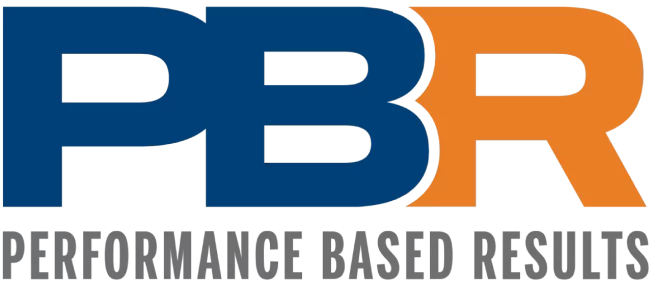Sales coaching is a powerful tool for transforming your sales team’s performance and boosting overall revenue. In this comprehensive guide, we’ll delve into the essential components of effective sales coaching, providing actionable insights that B2B leaders, from CEOs to sales managers, can implement right away.
Whether you’re looking to understand fundamental principles or advanced strategies, this guide will equip you with the knowledge you need to become an outstanding sales coach.
Ready to empower your team, hit those targets, and outdo your competitors? Let’s dive into the world of sales coaching and unlock your team’s full potential!
What is sales coaching?
Sales coaching is a targeted development process where a sales coach helps sales professionals enhance their skills, performance, and overall outcomes. Unlike traditional training, enterprise sales training focuses on pessonalized guidance and continuous improvement.
It involves assessing individual strengths and weaknesses, setting specific goals, and implementing tailored strategies to achieve those goals. Through regular one-on-one sessions, the sales coach provides constructive feedback, practical advice, and motivational support to help salespeople refine their techniques and build more effective sales habits.
By leveraging various sales coaching tools, both in-person and online, businesses can foster a culture of growth and achieve consistent sales success, ultimately driving greater revenue and competitive advantage.
Key principles of effective coaching
Effective sales coaching hinges on several key principles that pave the way for successful outcomes. Firstly, clear communication is paramount. This ensures both the sales coach and the team are on the same page, fostering a transparent environment where goals and expectations are clearly understood.
Secondly, active listening by the sales coach is crucial. By genuinely understanding the challenges and aspirations of team members, a coach can offer more precise and effective guidance. Thirdly, consistency in coaching sessions helps maintain momentum and ensures continuous improvement.
Fourthly, a focus on individual strengths and areas for improvement allows personalized coaching plans tailored to each team member’s unique needs. Lastly, fostering a culture of accountability ensures that all team members take responsibility for their growth and performance.
The role of a sales coach
A sales coach plays a vital role in enhancing the performance and productivity of sales teams. Acting as a mentor and guide, a sales coach helps sales professionals refine their skills, develop effective selling strategies, and achieve their targets consistently.
They provide personalized coaching sessions tailored to individual needs, focusing on areas such as advanced questioning and listening techniques, overcoming objections, and closing deals.
Furthermore, by identifying high profit prospecting opportunities, a sales coach ensures that the team targets the most lucrative prospects, thereby maximizing revenue potential. A sales coach facilitates continuous learning and development, ensuring the team adapts to market changes and competitive pressures.
By fostering a culture of accountability and motivation, they inspire the sales team to reach new heights, ultimately driving increased sales and profitability. Effective sales coaching transforms potential into performance, making it indispensable for any business aiming for sustained success.
Strategies for successful sales coaching
Successful sales coaching necessitates a blend of strategies tailored to enhance your team’s performance and drive results. By implementing effective techniques, you ensure each sales representative reaches their full potential. Here are some key strategies:
- Setting clear goals and expectations: Provide a roadmap for success;
- Developing customized coaching plans: Tailor training to individual needs;
- Utilizing feedback and performance metrics: Monitor progress and adapt accordingly.
These strategies, when executed proficiently, can transform your sales team into high achievers.
Setting clear goals and expectations
Setting clear goals and expectations is fundamental to effective sales coaching. Clear goals provide direction and purpose, enabling sales teams to stay focused on their objectives.
Start by defining specific, measurable, achievable, relevant, and time-bound (SMART) goals tailored to individual team members and the collective team. These goals should align with the overarching business objectives, ensuring everyone is working towards a common target.
Additionally, communicate the expectations clearly, outlining what success looks like and the steps needed to reach it. Regularly review progress and adjust goals as necessary to keep everyone on track.
This approach enhances performance and fosters a sense of accountability, highlighting the importance of clear sales coaching tips.
Developing customized coaching plans
Creating a tailored coaching plan is essential to address each sales team’s unique needs and challenges effectively. Developing customized coaching plans involves assessing individual and team performance to identify specific strengths and areas for improvement.
By doing so, a sales coach can design strategies that resonate with each team member’s learning style and professional goals. Incorporating personalized goals and actionable steps ensures that team members stay motivated and focused on their progress.
Using various “sales coaching techniques,” such as role-playing and real-time feedback, a coach can enhance the learning experience.
Boosting engagement while fostering a culture of continuous growth and adaptation ultimately leads to more significant improvements in “sales management coaching” results.
Utilizing feedback and performance metrics
Implementing feedback and performance metrics is crucial in refining a sales team’s strategy and accelerating their growth. Feedback serves as a continuous loop of improvement. By encouraging open communication, sales coaches can provide constructive critiques and actionable insights.
In conjunction, tracking performance metrics ensures that progress is quantifiable and transparent. Tools like CRM systems and sales dashboards can be invaluable, allowing coaches to monitor key indicators such as conversion rates, average deal size, and sales cycle length.
By analyzing these metrics, coaches can identify trends, recognize high performers, and address underperformance with tailored strategies. Utilizing both feedback and metrics fosters a culture of accountability and continuous improvement, making your sales coaching efforts more impactful and effective.
Enhancing sales team performance
Boosting the performance of a sales team is pivotal for any business aspiring to achieve consistent success. By implementing effective strategies, you can significantly enhance productivity, morale, and overall results.
This involves adopting techniques for motivation and engagement, focusing on building and maintaining strong relationships, and fostering a culture of continuous improvement.
Let’s dive deeper into these elements to truly understand how to elevate your sales team’s performance.
Techniques for motivation and engagement
Motivating and engaging a sales team is crucial for driving results. Utilize “techniques for motivation and engagement” to transform your team’s performance. Start with intrinsic motivators like recognizing accomplishments and providing meaningful feedback.
Encourage autonomy by allowing team members to take ownership of their tasks. Foster a positive work environment with team-building activities and open communication channels. Incentivize performance with rewards aligned to individual and team goals. Communication is key, so regular one-on-one check-ins can help address personal and professional growth needs.
Lastly, leverage technology to gamify sales targets and celebrate milestones, making the pursuit of goals more dynamic and engaging. By focusing on these strategies, you ensure your sales team remains motivated and deeply engaged.
Building and maintaining strong relationships
Establishing and nurturing strong relationships within your sales team is critical for effective sales coaching. When team members feel valued and supported, they are more likely to engage fully in their roles and contribute to a positive, high-performance sales climate.
Building robust relationships requires consistent communication, trust, and mutual respect.
- Creating a Foundation of Trust: Trust is the cornerstone of any strong relationship. As a sales coach, it’s important to be transparent, reliable, and consistent in your interactions. When your team knows they can count on you, they will be more open to feedback and guidance;
- Active Listening and Empathy: Demonstrating active listening and empathy shows your team that you genuinely care about their success and well-being. By understanding their challenges and goals, you can tailor your coaching approach to meet their unique needs effectively;
- Regular Check-ins and Support: Regular one-on-one meetings allow you to monitor progress, provide constructive feedback, and offer support. These check-ins are opportunities to celebrate successes, address concerns, and collaboratively set new goals;
- Fostering a Collaborative Environment: Encourage collaboration among team members to build a cohesive unit that works towards common objectives. When team members support each other, it enhances the overall performance and morale of the group;
- Recognition and Appreciation: Regularly recognizing and appreciating the efforts and achievements of your team members fosters a positive and motivating work environment. Acknowledging their hard work and successes reinforces their commitment to high performance.
By focusing on building and maintaining strong relationships, you create a supportive and motivating environment that drives success and continuous improvement.
Creating a culture of continuous improvement
In fostering a culture of continuous improvement within your sales team, it’s essential to embed a mindset of lifelong learning. Start by encouraging an open dialogue where team members can share insights and feedback freely. This can be achieved through regular training sessions and workshops focused on innovative sales coaching techniques.
Leveraging sales management coaching to address specific challenges can pave the way for incremental progress. Emphasize the value of setting small, achievable goals that can be measured and celebrated, creating a motivating environment. Finally, integrate consistent performance reviews and constructive feedback to identify areas for growth and celebrate successes, ensuring that the commitment to improvement becomes an intrinsic part of your sales team’s DNA.
Overcoming common challenges in sales coaching
Sales coaching can be riddled with obstacles, but understanding and addressing these common challenges can make all the difference. The key issues often revolve around resistance from the sales team, diverse skill levels, and balancing coaching with daily sales tasks.
By recognizing and proactively tackling these challenges, a sales coach can effectively create an environment of continuous improvement, ultimately driving better performance and results. Let’s dive into each challenge in more detail.
Addressing resistance to coaching
Resistance to coaching is a common hurdle, but overcoming it is essential for success. First, identify the root cause. Often, salespeople resist coaching due to fear of change or previous negative experiences. Effective sales coaching begins with establishing trust and demonstrating empathy.
Engage team members by actively listening to their concerns and providing specific examples of coaching benefits. Use motivational techniques to inspire openness, highlighting past successes from coached individuals.
Make the process collaborative by involving salespeople in setting goals and developing action plans. By creating a positive, supportive environment, you encourage a culture of continuous improvement, making your team more receptive to feedback and growth.
Managing diverse skill levels
One of the key challenges in sales coaching is effectively managing diverse skill levels within a team. In any sales environment, team members will range from seasoned veterans to fresh recruits. Tailoring your coaching approach is crucial for maximizing each individual’s potential.
Start by assessing the specific strengths and weaknesses of each team member through observations and performance metrics. Using tailored sales coaching tools can aid in this assessment.
Next, create personalized coaching plans that address these varied skill sets. For less experienced salespeople, focus on foundational skills and sales coaching training. For those more advanced, offer advanced techniques and strategies.
By recognizing and nurturing these differences, you’ll cultivate a high-performing, balanced team.
Balancing coaching with daily sales tasks
Balancing coaching with daily sales tasks can be challenging, yet it’s crucial for maintaining a productive sales environment. Effective time management is key. Start by integrating brief, focused coaching sessions into the daily routine, allowing sales reps to benefit from guidance without feeling overwhelmed.
Sales reps often experience this reluctance, which can hinder their performance and productivity. By incorporating strategies to overcome call reluctance into coaching sessions, you can help your team approach calls with greater confidence and effectiveness.
Utilize tools like calendar blocking to allocate specific times for coaching, ensuring it doesn’t interfere with critical sales activities. Prioritize high-impact coaching moments, such as end-of-day reflections or pre-call planning.
By incorporating coaching naturally into the workflow, you can enhance performance without sacrificing valuable selling time, helping to achieve both short-term sales goals and long-term development objectives. This balanced approach ensures continuous improvement while keeping the team motivated and engaged in their daily tasks.
Measuring the impact of sales coaching
Effective sales coaching can significantly enhance a team’s performance, but how do you measure its true impact? By leveraging key performance metrics, evaluating the return on investment (ROI), and gathering feedback from your sales teams, you can gain a comprehensive understanding of the benefits derived from sales coaching.
This section will delve deeper into these strategies to ensure your coaching efforts yield tangible, measurable results.
Tracking performance metrics
Tracking performance metrics is crucial for effective sales coaching. It allows you to gauge the success of your coaching initiatives and identify areas for improvement. Start by selecting relevant metrics such as conversion rates, average deal size, and sales cycle length.
Regularly review these metrics to spot trends and measure progress over time. Utilize advanced tools and software to automate data collection and generate insightful reports. Sharing these performance metrics with your sales team fosters transparency and accountability, motivating them to meet targets.
Remember, the goal is to use data to inform your coaching strategies and drive continuous improvement. By tracking performance metrics, you can coach sales teams more effectively and achieve better results.
Evaluating return on investment (ROI)
Evaluating the return on investment (ROI) in sales coaching is crucial for demonstrating the effectiveness and value of your coaching programs. By tracking key performance indicators (KPIs), business leaders can see tangible benefits that justify the investment.
Start by measuring improvements in sales metrics, such as closing rates and revenue growth, before and after coaching. Consider factors like enhanced team morale and reduced turnover rates. Use financial calculations to compare the cost of coaching against these gains to determine the net return. Regularly gather feedback from your sales team to identify qualitative benefits, such as improved skills and better customer interactions.
This comprehensive approach ensures you accurately assess the ROI of your sales coaching efforts.
Gathering feedback from sales teams
Gathering feedback from sales teams is crucial to fine-tuning your approach and enhancing overall performance. Feedback allows sales coaches to understand the practical challenges and successes sales reps encounter daily.
To gather insightful feedback, create an open and comfortable environment where team members feel their opinions are valued. Use tools such as surveys, one-on-one meetings, and anonymous suggestion boxes to collect honest insights. Incorporating structured feedback sessions into your online sales coaching can provide a steady stream of actionable data.
Regularly reviewing this feedback can guide sales coaching training, ensuring that it evolves to meet the needs of your team. This also fosters a culture of continuous improvement and engagement.
Contact us now!
Ready to transform your sales team and reach new heights of success? Our proven sales coaching techniques are designed to help you close more deals, increase profits, and motivate your team to perform at their best.
With customized coaching plans tailored to your business needs, you’ll see a measurable improvement in sales performance and overall productivity. Don’t let ineffective selling hold you back any longer. Contact us now to discover how our expert sales coaching can give your team the competitive edge it needs.
Together, we can unlock your business’s full potential and achieve exceptional results. Take the first step towards a brighter future and reach out today!






